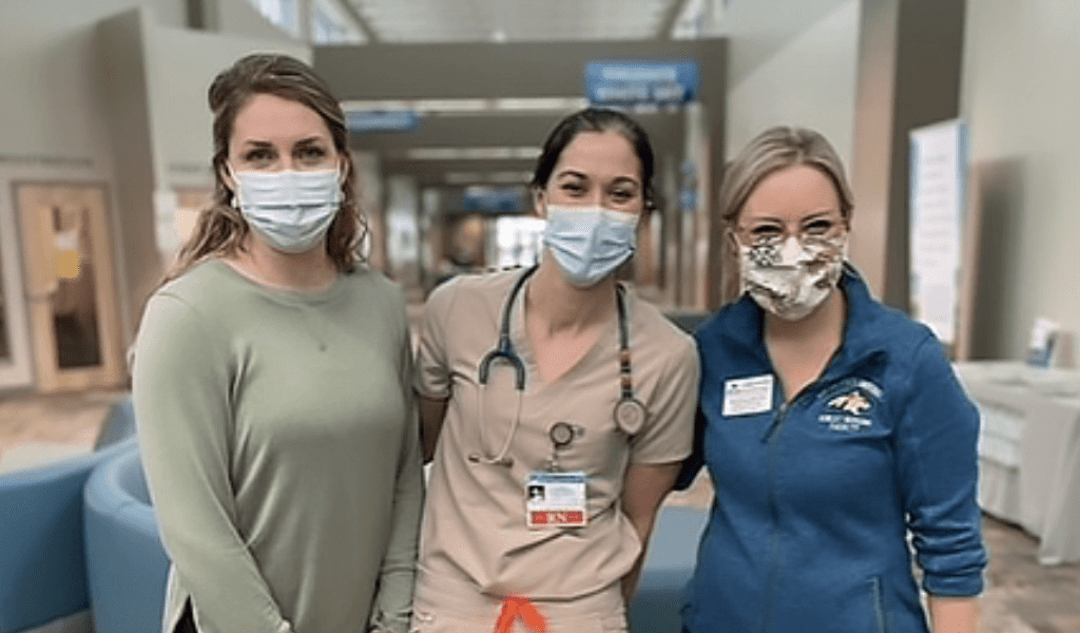Montana State nursing faculty to collaborate on $1.9 million rural cancer care project

BOZEMAN – Faculty and students from Montana State University’s Mark and Robyn Jones College of Nursing will collaborate on a newly-funded cancer care project aimed at providing easier access to cancer care for rural Montanans.
The $1.9 million project is one of seven nationwide funded by the pharmaceutical company Merck’s charitable arm, the Merck Foundation, in a $20 million initiative. While all seven of the projects focus on underserved communities, the Montana project – which will include collaboration with the American Society of Clinical Oncology, Bozeman Health and Barrett Hospital in Dillon – is the only one focused on rural healthcare.
“Unless you live in one of Montana’s cities, you are often more than 60 minutes away from cancer services such as infusion therapy,” said Marg Hammersla, an assistant professor in the college of nursing and the primary MSU faculty member on the project. “So, cancer patients must regularly travel to receive beneficial, life-saving therapy. There is a good possibility that for some patients in Montana, particularly on the eastern side of the state, they will forgo cancer treatment because accessing it is simply too burdensome.”
Lightening that burden is the goal of the collaborative project, which was announced by Merck in early September. Over five years, the collaborating agencies will establish a chemotherapy program at Barrett Hospital, which will allow southwest Montana residents to find more accessible cancer care closer to their homes.
The grant will fund preliminary research to determine what barriers discourage patients from accessing cancer care, which could be anything from travel times to weather restrictions or not having someone who can drive them to appointments if they’re feeling particularly unwell. As the project progresses, pharmaceutical and nursing resources at Barrett Hospital will be updated and expanded to establish the needed chemotherapy capabilities. A nurse practitioner will be hired to oversee chemotherapy infusions and to provide acute care for patients who would otherwise have to drive to a larger hospital like those in Bozeman, Billings or Missoula if they faced a need for acute care. There will also be support for a total of nine on-campus student researcher positions: one during the award’s first year and two during each of the remaining four years.
As a nurse practitioner in geriatric health, Hammersla sees the need for programs like this one every day in her own practice. Recent statistics show that Montana has the sixth highest proportion of residents over the age of 65 – 19.7% – and is the only state in the top ten that lies west of the Mississippi. While not every cancer patient is over 65, Hammersla notes that the older the population, the higher the incidence of cancer. For her, this project is more than research – it is creating access to life-changing therapy for rural people who are experiencing cancer, with the potential to save lives.
“This work will be transformative for our rural communities,” said Hammersla. “We know what needs to happen. But how do we break down the barriers, so rural cancer patients have access to effective cancer therapies? We’re hoping by this time next year these patients will be able to get chemotherapy closer to home reducing the logistical burdens of cancer treatment.”
The goal of the project is that the pilot model established through the collaboration between Bozeman Health and Barrett Hospital will turn into a “hub and spoke” model that can be replicated elsewhere, providing resources to establish medical capabilities that many rural hospitals simply don’t have the bandwidth or staff for. If the initial program is a success, the potential for expansion could be limitless in rural areas across the U.S.
“I think the investment by Merck in a project that’s focused on rural health is really significant, and speaks to the qualifications of the team that put this proposal together,” said Molly Secor, associate dean for research in the college of nursing. “Health outcomes for people living in rural communities are poorer than those for urban dwellers. To solve the challenges that account for this difference, we need to create momentum for system change. Montana is the perfect state to do that. Merck’s recognition that this is the right place, the right group of people and the right time is very exciting and gratifying.”
The unique nature of the MSU college of nursing also makes Montana an ideal place for this project, says Secor.
“Our nurse practitioners are able to complete their education from a distance,” said Secor. “Our hope is that they’ll stay in their home communities after they graduate to practice and serve Montana’s rural and frontier areas. To truly shift the needle on health outcomes, it will take nurses, nurse practitioners and nurse researchers. Nursing is at the nexus of being able to conduct science and then connect that science to practice.
For Hammersla, the collaboration is a perfect storm, and a chance to do exactly what the nursing profession was created for: to establish authoritative medical knowledge and use it to positively impact the lives of the people who need it most.
“I’m excited to demonstrate that a partnership between nurse researchers at the college of nursing, practice partners and professional groups is a win-win-win for everyone – especially Montanans,” said Hammersla. “This project is literally expanding geographic access to care. There are all kinds of opportunities for health care partners to form beneficial partnerships with the college of nursing, and I’m excited to build these collaborations.”
Founded in 1937, Montana State University’s Mark and Robyn Jones College of Nursing offers bachelor’s, accelerated bachelor’s, master’s and doctoral-level nursing education to produce nurses, nurse leaders, nurse educators and nurse practitioners for Montana. The college of nursing has campus locations in Bozeman, Billings, Great Falls, Kalispell and Missoula. Montana State University is the largest producer of registered nurses in Montana and is the sole provider of doctoral nurse practitioner education in the state. More information is available at montana.edu/nursing.